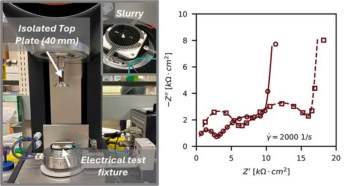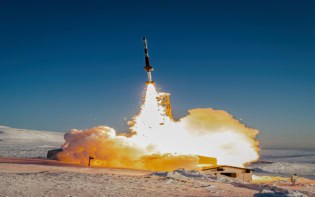Available to watch now, The Electrochemical Society in partnership with EL-Cell, BioLogic, TA Instruments – Waters and WITec explor the development of sustainable next-generation battery chemistries and materials
Want to learn more on this subject?
 The widespread adoption of battery technologies for electric vehicles and grid electricity storage requires optimization of cost, energy density, power density, cycle life, safety, and environmental impact, all of which are directly linked to severe materials challenges. Cost and sustainability will be the single dominant factor as we march forward.
The widespread adoption of battery technologies for electric vehicles and grid electricity storage requires optimization of cost, energy density, power density, cycle life, safety, and environmental impact, all of which are directly linked to severe materials challenges. Cost and sustainability will be the single dominant factor as we march forward.
This webinar focuses on the development of sustainable next-generation battery chemistries and materials. Strategies and approaches for eliminating expensive and scarcely available cobalt, followed by eliminating nickel and ultimately any mined metal, including lithium, are discussed. As an example, the progress on cobalt-free, high-nickel cathodes, lithium-sulfur cells, and sodium-sulfur cells is presented. The challenges of bulk and surface instability and chemical crossover during charge-discharge cycling, dynamics and stabilization of lithium or sodium plating and striping, advanced characterization methodologies to develop an in-depth understanding, and approaches to overcome challenges are presented.
An interactive Q&A session follows the presentation.
Want to learn more on this subject?

Arumugam Manthiram is the George T and Gladys H Abell Endowed Chair of Engineering at the University of Texas at Austin (UT-Austin). From 2011–2022, he was the director of the Texas Materials Institute at UT-Austin. After receiving his PhD in chemistry from the Indian Institute of Technology Madras in 1981 and working as a postdoctoral researcher at the University of Oxford and at UT-Austin, in 1991, he joined the UT-Austin Department of Mechanical Engineering faculty. Prof. Manthiram’s research focuses on batteries and fuel cells. He has authored more than 900 journal articles with 102,000 citations and an h-index of 158. He has mentored approximately 300 students and postdoctoral researchers, including the graduation of 69 PhD students.
Arumugam is a fellow of The Electrochemical Society, Materials Research Society, American Ceramic Society, Royal Society of Chemistry, American Association for the Advancement of Science, and World Academy of Materials and Manufacturing Engineering. He is an elected member of the World Academy of Ceramics. He received the 2023 ECS John Goodenough Award, 2021 ECS Battery Division Technology Award, 2020 ECS Henry B Linford Award for Distinguished Teaching, 2020 International Battery Association Research Award, 2016 Billy and Claude R Hocott Distinguished Centennial Engineering Research Award, 2015 Distinguished Alumnus Award of the Indian Institute of Technology Madras, 2014 ECS Battery Division Research Award, and 2012 university-wide (one per year) Outstanding Graduate Teaching Award. He is a Web of Science Highly Cited Researcher every year since 2017. He delivered the 2019 Chemistry Nobel Prize Lecture in Stockholm on behalf of Prof. John Goodenough.








